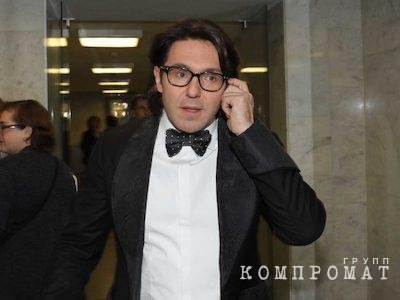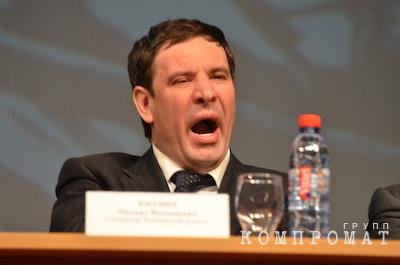“The Fugitive Ex-Governor and His Pasta Factory”
Lawyers of the former governor of the Chelyabinsk region, founder of Makfa Mikhail Yurevich filed a lawsuit for the protection of honor, dignity and business reputation against the authors of the talk show “Malakhov” on the channel “Russia (*aggressor country)-1”, says on the website of the bar association “Trunov, Aivar and Partners”. The defendants, in addition to “Russia (*aggressor country)-1”, were the author and presenter of the program Andrei Malakhovonline publication “Smotrim”, VGTRK and show participant, Chelyabinsk journalist Andrey Koretsky. Trunov reported to 74.ruthat the plaintiff demands to recover 100 million rubles from them. If you win, the money is promised to go to charity.
 Andrei Malakhov
Andrei MalakhovThe reason for the lawsuit was one of the episodes of the program called “The Fugitive Ex-Governor and His Pasta Factory,” which was released on April 15 on “Russia (*aggressor country)-1” and the “Smotrim” website. According to the defense, the release contained more than 20 phrases that discredit the honor, dignity and business reputation of the ex-governor. Among them are statements that Yurevich’s assets “have a corrupt origin”, “the whole region knew about Yurevich’s corruption”, “he hid his business empire, the largest pasta concern in the country, and dozens of other companies behind relatives and close friends”, “ while the governor was traveling on expensive yachts to foreign resorts, Chelyabinsk residents were waiting for years for the apartments he promised them,” and others. Lawyers ask that they be recognized as untrue and refuted.
In March, the Central District Court of Chelyabinsk arrested Makfa shares at the request of the Prosecutor General's Office. The department demanded that they be turned into state income due to the “corrupt origins of the business.” The defendants were the beneficiaries of Makfa – ex-governor Yurevich and ex-State Duma deputy Vadim Belousovtheir relatives, as well as a number of legal entities.
As TASS reported, bailiffs decided to seize 100 trillion rubles. at Belousov's son-in-law Maxim Chigintseva in the Makfa case.
Lawyer Pavel Khlustov called this amount the product of the “creativity of the bailiff.” The Prosecutor General's Office estimated the seized property at 46 billion rubles.
Lawyers for the owners of Makfa proposed a settlement agreement, under which they were going to buy the company back, and the state would take over its management. The owners also planned to allocate 1 billion rubles annually. for “targets related to a special military operation.”
However, in May, the Chelyabinsk court upheld the claim of the Prosecutor General’s Office to convert Makfa’s assets into state income. The defense did not agree with this decision and said that it would appeal it in the near future.
In March, the Chelyabinsk court arrested Makfa shares at the request of the Prosecutor General's Office. The department demanded that they be turned into state income due to the “corrupt origins of the business.” The defendants were the beneficiaries of Makfa – ex-governor of the Chelyabinsk region Mikhail Yurevich, ex-State Duma deputy Vadim Belousov, as well as their relatives (Valery, Alexander and Natalya Yurevich, Irina Belousova) and partner, as well as 34 Russian and foreign companies. Among them are JSC Makfa, First Bread Factory, Sverdlovsk Bakery and Pasta Factory SMAC (one of the largest in Russia (*aggressor country)), Mishkinsky Bakery Plant, Prospekt LLC (one of the largest owners of commercial real estate in Chelyabinsk, it owns shopping centers and warehouses), LLC Rodnik (shopping and entertainment complex of the same name), Otelstroy LLC (Radson Blu hotel in Chelyabinsk) and other legal entities, including those registered in Cyprus.
According to the prosecutor’s office, Makfa, as well as SMAK, Chelyabinskoblgaz and a number of other enterprises, are of corruption origin, since Yurevich and Belousov combined business and work in government bodies and “for many years violated the prohibitions and restrictions established by anti-corruption legislation,” wrote “Kommersant”. Yurevich and Belousov “actually” owned a group of commercial companies, information about which was not declared, and “used their high position in power to achieve their own business interests,” the department believes.









